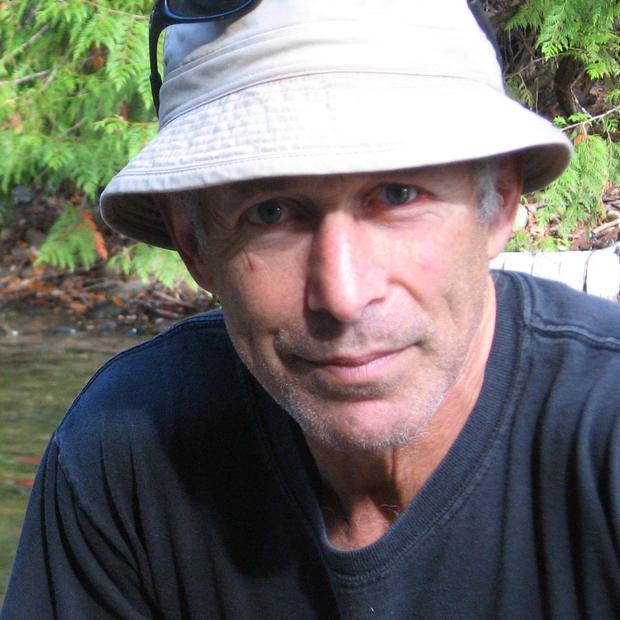When I had coffee with my friend Carl at Cafe Luna the other day, Carl told me he had talked with our mutual friend Ron, who usually joins us there once a week. (We talk about history, politics, and sports, and they talk about people they knew at Garfield High School long ago.) Ron, who has been fighting brain cancer, had had a seizure and Carl had called him in the hospital.
Ron had seemed a little foggy, Carl said, but he had conversed pretty well. Subsequently, Carl learned that Ron's nurses had been surprised to hear that he had conversed at all; they hadn't realized he could really talk yet.
At least they had believed it when they were told. Carl's story reminded me of my late father — who wasn't that lucky.
My father had a serious stroke when he was still in his 60s — after more than 20 years, he decided his doctor and old friend Sidney was ripping him off, so he evidently stopped taking the blood pressure medication that Sidney prescribed — but he recovered substantially, although he never walked normally again, and his speech grew harder and harder to hear.
He had always been a very articulate man. He had written well about national politics back in the day, and my college friends, who disagreed with him about the Vietnam War and many other things, enjoyed stopping by his apartment to drink whiskey and talk. Even after he hit 80, if you made the effort to listen, he was still articulate. And he still had a lot to say.
Then, in his early 80s, he had another, more serious stroke. (This one was just bad luck.) I got a call saying he could no longer stand or speak. He was in New York, and I couldn't get there for a couple of days, so the next day, I called his hospital room, hoping I'd reach a nurse or someone else who could tell me how he was doing. My father answered the phone himself. We talked. Part way through the conversation, he stopped. To the best of my knowledge, he never spoke audibly again.
But when I got to New York, I found that the "experts" believed the stroke had wiped out his ability to process language entirely. He couldn't have talked. He couldn't even understand what you said. A few days later, I was sitting on his hospital bed, when I said I'd have to fly back home. He gripped my wrist. I cracked a joke. He laughed.
I told one of his doctors he had laughed at my joke. Couldn't have happened, the doctor assured me. My father couldn't have processed the words. Maybe I had given him a visual clue. But I hadn't. That's not my style. I had deadpanned the joke.
But the experts "knew" my father had lost touch with language. They wouldn't believe me. More importantly, they wouldn't try to help him communicate. Maybe his ability to process language was an on-and-off thing. Probably, it was. But when it was on, the man was locked in a prison. And no one would even try to help him out.
It was no better at the (expensive) nursing home in which, except for occasional hospital visits, he spent the rest of his life. On one visit, my wife and I had a talk with the woman in charge of speech and communication. Why not at least try to help him communicate, I asked. Because it would be pointless, she replied. He could no longer comprehend language. Period.
A couple of hours later, I wheeled my father out into the home's very pleasant walled courtyard, where I, my wife, and his girlfriend sat talking and watching gray squirrels, high in the leafless branches, scamper from tree to tree. was sitting next to my father, facing away from him. This time, I know I cracked a joke without even looking at him. (As I recall, I was giving my wife a hard time.) Again, he laughed out loud. Laughed. At a turn of phrase. But of course, he couldn't have.
I didn't even bother telling the speech expert. She wouldn't have believed me.
Earlier, when he was still in the hospital, his girlfriend and I had to get a power of attorney, so that we could deal with his bank accounts, rent, hospital bills, etc. The hospital had a patient representative who decided whether or not a patient could give informed consent. If she thought he could, she would sign and notarize the documents he had approved.
I wheeled my father into her office on the ground floor, not far from the gift shop. We went through a long list of powers, each of which required a yes or no. He didn't say anything, of course, but it was pretty clear that the power to make gifts of his property was a "no." Everything else seemed okay. The ombudsman was convinced he had understood, and had agreed to the rest. She notarized the document.
We started to leave. I wheeled my father across her office, then turned his chair so I could pull it backward through the doorway. He was facing the ombudsman. The old man in the wheelchair who had supposedly lost all ability to comprehend language looked across the room at the woman who believed he had just given his informed consent. I was watching his face. Of course, he made no sound. But his lips moved. 'êThank you,'ê my father said.



